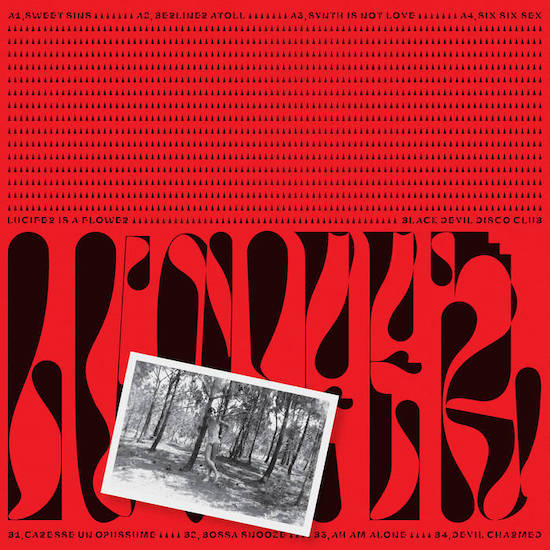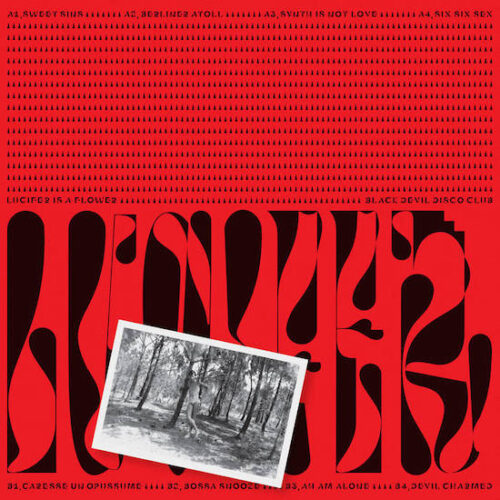In a poll conducted by discomusic.com of the best five hundred disco songs, the titles and artist names relate positivity, light, happiness, and activity. Predictably, the word ‘love’ features most frequently, followed by ‘dance’, followed by ‘boogie’. I have a feeling this is the case for most disco music polls and perhaps disco music in general. It’s a genre of certainty. Just look at titles like ‘I Feel Love’, ‘Come To Me’, ‘I Want Your Love’; they’re direct and frank. Without wishing to put too fine a point on it, disco is a genre that defines and is defined by the good times.
Nowhere on this list are any references to the darker facets of life, like ‘regret’, ‘loneliness’, ‘ennui’, ‘evil’, or ‘uptight obstinacy’. There’s no mention of El Diablo, Satan, or him downstairs. Black Devil Disco Club’s new album, Lucifer Is A Flower, alone contains more references to the devil than the entire discomusic.com poll. There are song titles such as ‘Six Six Sex’ and ‘Devil Charmed’. Don’t be alarmed, it isn’t some wretched hybrid of Giorgio Moroder and Black Sabbath (actually, that sounds… amazing) but an exciting reordering of the disco aesthetic. The party’s still going on, but it might turn a bit nasty.
Now, in some ways all the devil imagery, the red and black cover, and the references to the deadly sins, might even wrongfoot you initially. Half-listening to Lucifer Is A Flower might suggest that this album is disco by numbers. There are electronic claps, chunky basslines, congas, all good clean fun. But where’s the evil? The evil of this music plays around the edges like a few Hieronymus Bosch figures creeping around the dance floor in the Saturday Day Night Fever poster (perhaps that’s why John Travolta and Karen Gorney look so panicky). Harmonies almost tip over into shrieks in ‘Berliner Atoll’. All over the album are strange vocals that wail with an odd keening edge. During ‘Six Six Sex’, are you hearing moans of pleasure… or pain? The vibrato-caked vocals on ‘Caresse Un Opossume’ seem to lament something, to wearily warn of something.
Lucifer Is A Flower hints at the darker side of party music indulgence, the one that’s not mentioned among all the ‘love’, ‘dance’, and ‘boogie’. The instrumentation is often so clean and clinical it can almost feel like stock sounds, but coupled with the eerie atonal textures it feels very odd. Like a Bosch painting, where the lines are smooth, colours are clean and saturated, and even figures in darkness shine in the gleam of some unseen light, the arrangements feel alarmingly smooth and uncomfortably well-rendered. This contrast hints at the grinding paranoia and disillusionment associated with a dance floor and what comes next. A pretty conventional arrangement on ‘Sweet Sins’ is disrupted by these frequent dial-up noises, like a succession of brain zaps that threaten to obscure the music. These are similar to staccato, atonal guitar pops and squeaks on the intro to ‘Berliner Atoll’.
I’m still not sure whether this album warns of the devilish side of ‘love’, ‘dance’, and ‘boogie’ or is merely the soundtrack to Bacchanalian orgies of excess in the Underworld, but you can be pretty sure that Lucifer Is A Flower is encouraging you to get down



